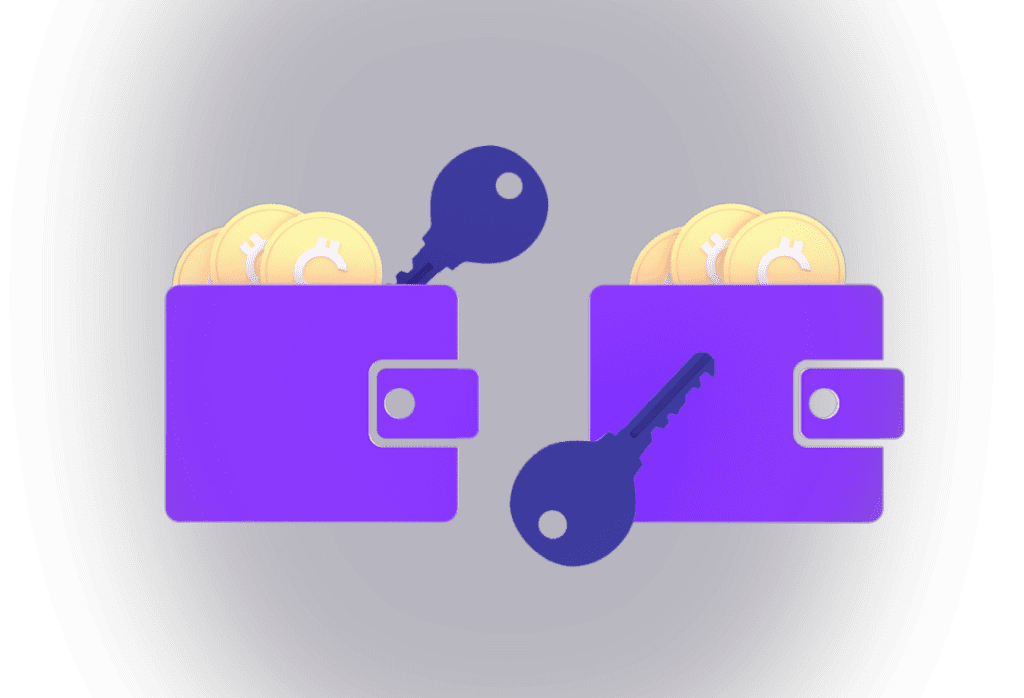Custodial vs. non-custodial wallets
As a beginner in the world of cryptocurrencies, knowing the differences between custodial and non-custodial wallets is important, so you know how your private keys are being stored and how that affects your safety. This chapter will provide you with more information about the key differences, pros, and cons of both types of wallets, enabling you to make informed decisions on your crypto journey.
Custodial Wallets
Custodial wallets are managed by third-party providers who hold control over your private keys. They are popular with newcomers and experienced traders due to their range of services and user-friendly interfaces.
Custodial wallets are often provided by centralized cryptocurrency exchanges and some online wallet services. Examples include crypto exchange wallets (Coinbase, Binance…) and online wallet services like BitGo.

Non-custodial Wallets
Non-custodial wallets grant users full control over their private keys, ensuring that they are the sole party responsible for their digital assets. These wallets are favored by those who prioritize security and control over their digital assets.
Non-custodial wallets can be found in various forms, including hardware, software, and browser extensions. Examples include Ledger, MetaMask, Trust Wallet…
Custodial and non-custodial wallets have several differences. We gathered them into a comparison table for easier review:
| Category | Custodial Wallets | Non-custodial Wallets |
| Private Keys | With the third party | With you |
| User Interface | User-friendly interfaces | May require more technical knowledge |
| Customer Support | Available | Limited |
| Additional Features | Offered (trading, lending, etc.) | May not be offered |
| Access Recovery | Possible | Not possible |
| Control | Centralized | Decentralized |
| Service Downtime Risks | Present, depends on the provider | Reduced, not reliant on service |
In conclusion, custodial wallets are ideal for beginners who value convenience and ease of use, while non-custodial wallets cater to those who prioritize security and control over their digital assets. As you gain experience and confidence in crypto, you can decide which wallet type best suits your needs. Remember to weigh the pros and cons carefully and consider your personal preferences and risk tolerance before making a decision.
